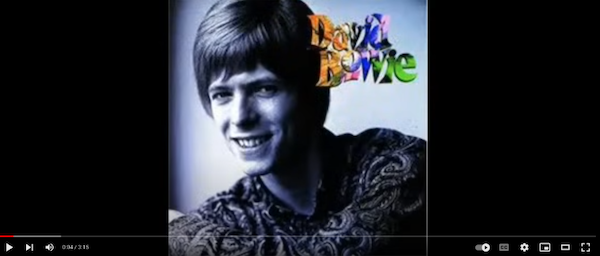
Listen to the song “The Laughing Gnome” by David Bowie.
The following activities and questions are designed to help your students use their noticing skills to move through the poem and develop their thinking skills so they understand its meaning with confidence, using what they’ve noticed as evidence for their interpretations. Read more about the framework upon which these activities are based.
-
Warm-up: Look closely at the print “Note to Our Higher Selves” by Stephanie Santana. What stands out to you in the image? Why? Look again. What else do you notice? What feelings does the piece evoke? Why?
-
Before Reading the Poem: Listen to the song “The Laughing Gnome” by David Bowie. What words or phrases stand out in the song? Why?
-
Reading the Poem: Silently read the poem “Your laughter turns the world to paradise” by Jalal al-Din Rumi, translated by Haleh Liza Gafori. What do you notice about the poem? Note any words or phrases that stand out to you or any questions you might have.
-
Listening to the Poem: Enlist two volunteers and listen as the poem is read aloud twice. Listen as the poem is read aloud twice and write down any additional words and phrases that stand out to you.
-
Small Group Discussion: Share what you noticed about the poem with a small group of students. Based on the details you just shared with your small group and the resources from the beginning of class, what do you think of the title “Your laughter turns the world to paradise”? What might the relationship be between the speaker and the person in the poem being addressed?
-
Whole Class Discussion: What do you think of the repetition and symbolism in the poem? Why? What do you think of the line “It’s the habit of lightning to laugh through a storm”? What role does laughter or joy play in your own life?
-
Extension for Grades 7-8: Use this sentence frame or one of your own to write a poem: “Your laughter turns the world to …” or “Your [insert your own idea] turns the world to …” Share your poem with the class.
-
Extension for Grades 9-12: Learn more about Rumi by watching the animated TedEd video “How to Love” or “A Meditation on Rumi and the Power of Poetry.” Continue reading Rumi’s poetry. What can we learn about life from his poetry? Write a short piece that explores this question. Share your writing with the class.
Haleh Liza Gafori is an Iranian American translator, poet, performance artist, and composer born in New York City. Her book Gold, which features her translations of poems by the thirteenth-century sage and mystic Rumi, was published by New York Review Books Classics/Penguin Random House in 2022. Read more about Gafori.
Translation is the art of transferring meaning from one language to another. Read more.
